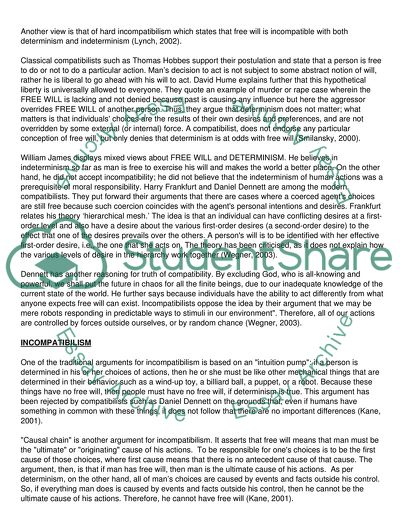Cite this document
(Free Will and Its Critical Concepts in Philosophy Assignment, n.d.)
Free Will and Its Critical Concepts in Philosophy Assignment. https://studentshare.org/philosophy/1713848-defend-a-position-on-free-will-and-determinism
Free Will and Its Critical Concepts in Philosophy Assignment. https://studentshare.org/philosophy/1713848-defend-a-position-on-free-will-and-determinism
(Free Will and Its Critical Concepts in Philosophy Assignment)
Free Will and Its Critical Concepts in Philosophy Assignment. https://studentshare.org/philosophy/1713848-defend-a-position-on-free-will-and-determinism.
Free Will and Its Critical Concepts in Philosophy Assignment. https://studentshare.org/philosophy/1713848-defend-a-position-on-free-will-and-determinism.
“Free Will and Its Critical Concepts in Philosophy Assignment”. https://studentshare.org/philosophy/1713848-defend-a-position-on-free-will-and-determinism.


